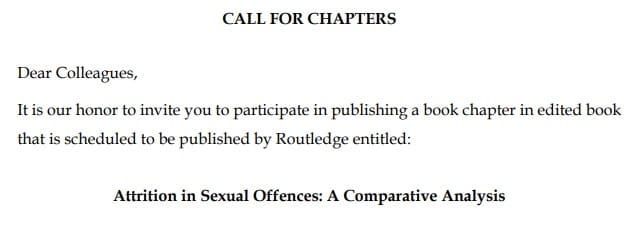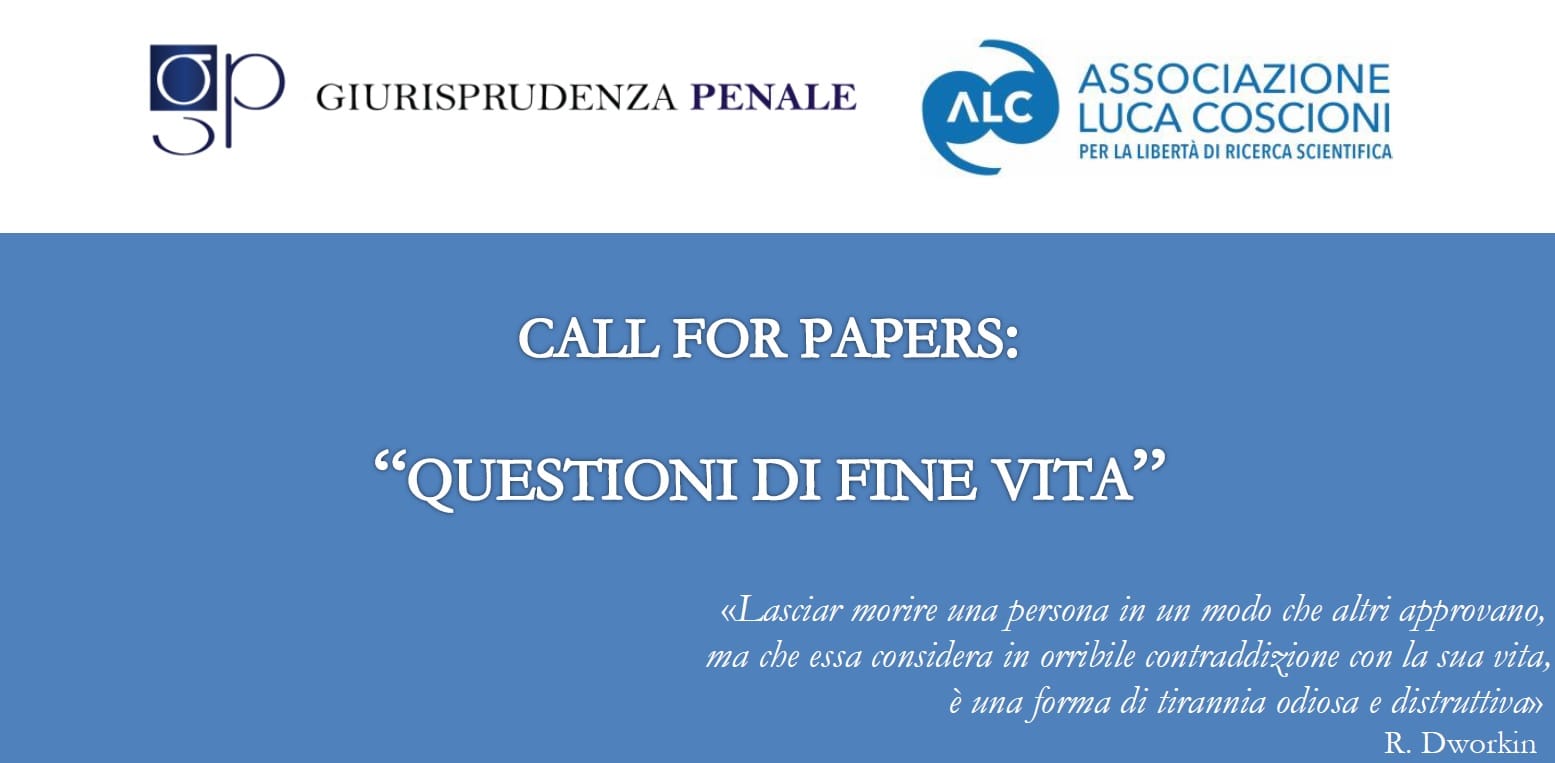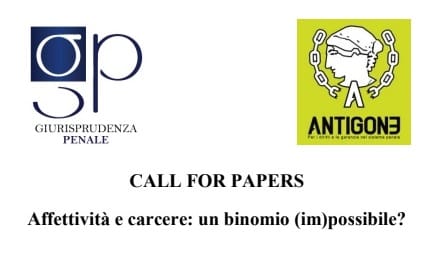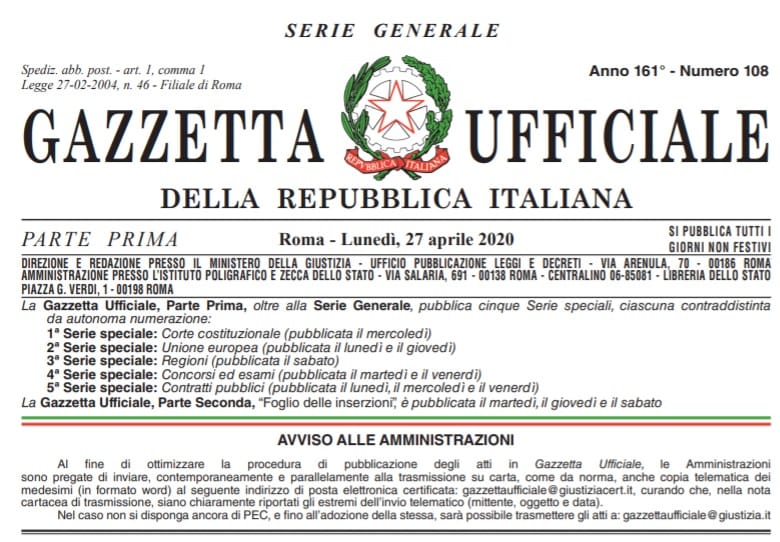Attrition in Sexual Offences: A Comparative Analysis (call for chapters)
Riceviamo – e volentieri pubblichiamo – la “call for chapters” in tema di sexual crimes organizzata dalla prof.ssa Rahime Erbas (Faculty of Law, Istanbul University), dalla prof.ssa Sophie Marsh (Bristol Law School, University of the West of England) e dal prof. Ed Johnston (Bristol Law School, University of the West of England), nell’ambito di un’opera intitolata “Attrition in Sexual Offences: A Comparative Analysis” che sarà pubblicata da Rutledge.
Gli abstract – di 300 parole – dovranno essere inviati entro il 1° gennaio 2021 ai seguenti indirizzi email: rerbas@istanbul.edu.tr, sophie.Marsh@uwe.ac.uk e edward2.johnston@uwe.ac.uk.
***
Pubblichiamo, di seguito, il testo della call for chapters:
CALL FOR CHAPTERS
Dear Colleagues,
It is our honor to invite you to participate in publishing a book chapter in edited book that is scheduled to be published by Routledge entitled: Attrition in Sexual Offences: A Comparative Analysis
Sexual Offences appear to significantly contribute to the dark figure of crime in criminology. In fact, there is an apparent disparity between the number of sexual offences brought to the attention of authorities and the poor conviction rate, which is arguably a consequence of attrition. It was recently discovered in England and Wales that 99% of rapes reported to the police resulted in no legal action being brought against the alleged attackers. There are many factors that play role in this high level of attrition. As this book will demonstrate, this problem is not unique to England and Wales. Cultural factors, such as the broad acceptance of rape myths, create a skewed perception of sex crimes and the behavior of both the victim and the perpetrator.
Moreover, there are a significant number of challenges in the application of criminal procedural law. For example, sexual offences cause difficulties for collecting biological evidence. Owing to untimely disclosure, finding a witness is almost impossible and obtaining biological evidence from complainant is difficult. Clothes might be washed or destroyed, which ultimately means any tangible evidence may disappear. Consequently, the victim’s statement is often the only evidence in these crimes. Nonetheless, victims require an efficient response from authorities to support them in criminal proceedings and to prevent re-victimization.
This edited collection aims to tackle the astonishingly high rate of attrition in sexual offences within the European jurisdictions. As such, the book will examine the issue of attrition in cases involving sexual offences (through the case law approach) and offer conclusions on how the symptomatic problem is can be resolved. The book aims to illuminate an area of law that has plagued criminal justice for decades. The comparative analysis will permit conclusions to be drawn from a raft of different jurisdictions to allow the book to draw an holistic solution on how to tackle the issue of attrition. Thus, the following points which may lead to an attrition in sexual offences could be considered as example for a cross-cultural jurisdiction analysis;
– The factors stemming from cultural, sociological, economical etc. (e.g., rape myths) preventing victims from reporting to authorities
– Implications of legal frameworks of sexual offences
– The approach of case- law in application of sexual offences
– Proving challenges (the admissibility of evidence), inter alia and the role of victim impact statements
– Collecting and using biological evidence for the sexual offences
– The vulnerability of victims of sexual crimes in criminal procedure
– Sexual offences within relationships (marriage or partners)
– Perpetrator and victim typologies in sex crimes
If you have a topic that does not fit into above categories, we will be happy to discuss your chapter proposal. Furthermore, including empirical analysis for the use of chapters is encouraged as it does not delay submission of the chapter (it must be submitted on the deadline).
We believe that your contribution will be a great asset and that your collaboration will bestow upon the book.
Please let us know if you would like to contribute to our book surrounding the above topics by sending a 300 words abstract by the 1sth January of 2021.
All submissions must be made to rerbas@istanbul.edu.tr, Sophie.Marsh@uwe.ac.uk and edward2.johnston@uwe.ac.uk
Please feel free to disseminate this call for chapter to your network.
We look forward to hearing from you.
Sincerely,
Rahime ERBAŞ, Faculty of Law, Istanbul University
Sophie MARSH, Bristol Law School, University of the West of England
Ed JOHNSTON, Bristol Law School, University of the West of England









